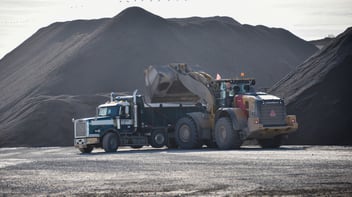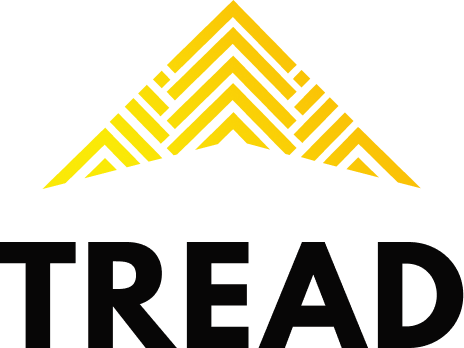4 Reasons Why Your Drivers May Resist a Digital Tracker
Truck drivers, on average, spend upwards of 300 days per year on the road and are required to log their travels throughout the day. More often, drivers are using traditional paper tracking to record hours, which is both time and labor-intensive.
Over-The-Road (OTR) technology like digital trackers is now federally mandated in both the US and Canada; however, these devices often face criticism. But technology gives truck drivers and construction fleets important information about business travels – including bridge weight or diesel prices – not only simplifying a driver’s life but the business’ bottom lines as well.
As such, here are four common complaints from commercial truck drivers and how to respond to them.
1.“I don’t want to be micromanaged.”
Many drivers tend to pick this vocation because of its flexibility. To some truck operators, tracking technology like GPS amounts to spying on or monitoring their behaviour.
“To address privacy concerns, some apps and mobile technologies only have access to physical locations when users are logging a job,” says Noah Dolgoy, CEO and founder of Tread. “With Tread, it is not possible for anyone else to activate location services on your device remotely when using the software.”
Digital trackers, however, can benefit truck drivers in a plethora of ways – from monitoring vehicle performance in real-time to optimizing routes for distributing materials. Being equipped with technology that makes moving heavy construction materials more efficiently means you can arrive at the next job faster.
Get a bird’s eye view of your fleet with real-time GPS tracking. Request a demo of Tread’s software today.
2.“It’s going to affect my job.”
Background checks are standard employment screening for truck drivers and subcontractors. Additionally, driving and criminal records are also under constant review. With this level of consistent scrutiny, the last thing an employee wants is a reason that keeps them off the road.
Technology can mitigate some of these concerns.
While car drivers cause 80 percent of private-vehicle-to-big-rig crashes, truck drivers are repeatedly blamed for these accidents. Electronic logs and GPS trackers can help exonerate a driver in the case of a disputed incident, ultimately increasing safety on the road and in the courtroom.
3.“It’s going to cost me a lot.”
Truck drivers – especially owner-operators – are responsible for covering their expenses. Between making equipment payments, purchasing fuel, and paying for insurance and maintenance, small business owners don’t need or want another expenditure.
What if on the road time-tracking technology also ensured the accuracy of ticket details allowing drivers to get paid faster and without dispute?
“Our e-ticketing process reduces invoice disputes from 17 percent to 0. Furthermore, the technology is free for drivers,” explains Dolgoy.
There is value gained from embracing technology that alleviates cost concerns because it’s effective, efficient, and as simple as uploading a photo of your ticket.
4.“I don’t want to use my own phone’s data.”
For independent truck drivers, their phones are personal ones, and drivers incur the data fees that allow fleet managers to remotely view an operator’s travel.
What if tracking technology didn’t require data?
Tread’s proprietary text-to-accept feature, was specially developed for people who don’t have a smartphone or cellular data. The feature uses text messages to link with the dispatcher app, letting drivers know where they need to be and letting the dispatcher know when an operator has received and responded to a text, simplifying the process of collecting information about where drivers need to be, when, and their loads.
“With real-time information and alerts from fleet management and truck dispatch software like Tread, companies enjoy less congestion and wasted time onsite when moving and delivering heavy materials,” adds Dolgoy.
Transparency in trucking
Digital tracking software is more than monitoring behaviour. With the rise of construction tech adoption, the industry is finding operational efficiencies that are simplifying fleet management and making truck driving more efficient.
Tread is a free tool for drivers to download to their mobile device and use to accept jobs. Tread helps truck drivers and fleet managers move construction materials easier and faster, resulting in more profitability. Contact us today to learn more.
About the Author
Read On

13 fleet truck fuel management best practices
Fuel is the second-largest fleet-operating expense year after year. On average, it eats up 60% of a...

What Is Construction Fleet Management?
Managing a construction company comes with many challenges. Some of the most common issues include...

Truck Driver Safety Incentive Program: 5 Key Practices
When you’re in charge of a truck fleet, driver safety should be paramount. As demands on truck...


